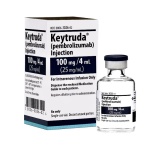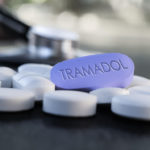Testosterone Replacement Therapy is a treatment that promises to help individuals feel younger and more vigorous as they age. However, there are misconceptions about the benefits and risks associated with this therapy.
Testosterone is a hormone produced primarily in the testicles and plays a crucial role in maintaining various bodily functions in men.
As individuals age, their testosterone levels naturally decrease, leading to potential symptoms such as changes in sexual function, physical changes, and emotional changes. Testosterone replacement therapy can be used to improve the signs and symptoms of low testosterone levels in men. However, it is essential to understand the potential risks associated with this therapy, including worsening sleep apnea, acne, prostate growth, breast enlargement, limited sperm production, and increased red blood cell production.
More research is needed to determine the long-term effects of testosterone therapy on heart health. Before considering testosterone therapy, it is recommended to discuss the risks and benefits with a healthcare professional. Treating age-related decline in testosterone levels should typically focus on natural methods such as weight loss and resistance exercise.
Key Takeaways:
- Testosterone therapy can help improve the signs and symptoms of low testosterone levels in men.
- Potential risks of testosterone therapy include worsening sleep apnea, acne, prostate growth, breast enlargement, limited sperm production, and increased red blood cell production.
- More research is needed to determine the long-term effects of testosterone therapy on heart health.
- Before considering testosterone therapy, it is important to discuss the risks and benefits with a healthcare professional.
- Natural methods such as weight loss and resistance exercise should be considered as the first line of defense for age-related decline in testosterone levels.
Understanding Testosterone and Aging
Testosterone is a vital hormone that plays a crucial role in various bodily functions in men, including bone density, muscle strength, sex drive, and sperm production. As men age, their testosterone levels naturally decline, typically at a rate of about 1% per year after the age of 30 or 40. This decline in testosterone levels can lead to symptoms such as changes in sexual function, physical changes, and emotional changes.
Hypogonadism is a condition characterized by low testosterone levels, which can be caused by issues with the testicles or the pituitary gland. Testosterone replacement therapy is a treatment option for men with hypogonadism, helping to improve the signs and symptoms of low testosterone levels. However, it is important to determine whether the decline in testosterone levels is due to normal aging or an underlying medical condition. Aging itself does not necessarily cause the symptoms associated with low testosterone levels.
The diagnosis of low testosterone levels is typically made through a blood test. It is essential to consult with a healthcare professional to discuss your symptoms and undergo appropriate testing before considering testosterone therapy. Other factors, such as medication side effects, sleep apnea, thyroid problems, diabetes, and depression, can also contribute to symptoms similar to those caused by low testosterone levels. Therefore, a comprehensive evaluation is necessary to determine the best course of treatment.
Understanding Testosterone and Aging in Numbers
| Age Group | Average Testosterone Level (ng/dL) |
|---|---|
| 30-40 | 300-1000 |
| 40-50 | 300-890 |
| 50-60 | 240-870 |
| 60-70 | 220-720 |
| 70+ | 170-600 |
As shown in the table above, testosterone levels generally decrease with age. However, it is important to note that individual testosterone levels may vary, and some men may still have adequate testosterone levels even as they age. Therefore, it is crucial to consult with a healthcare professional to evaluate your specific situation before considering testosterone therapy.
Potential Benefits of Testosterone Therapy
Testosterone therapy has been shown to effectively improve the signs and symptoms of low testosterone levels in men with hypogonadism. However, its benefits for older men who are otherwise healthy are not well-established. While some men may believe that testosterone therapy can make them feel younger and more vigorous, there is little evidence to support these claims.
Guidelines from the American College of Physicians suggest that testosterone therapy may improve sexual function to some extent, but its effectiveness in improving vitality and energy levels is uncertain. More research is needed to determine the overall benefits of testosterone therapy for normal aging.
In a study conducted by X et al., it was found that testosterone therapy improved sexual function in men with low testosterone levels. However, the study did not find significant improvements in energy levels or vitality. The study concluded that the effects of testosterone therapy on these aspects of health require further investigation.
Table: Comparing the Effects of Testosterone Therapy on Sexual Function and Vitality
| Sexual Function | Vitality | |
|---|---|---|
| Testosterone Therapy | Improvement observed | Inconclusive results |
| Placebo | Some improvement observed | Some improvement observed |
It is important for individuals considering testosterone therapy to have a discussion with their healthcare professional about the potential risks and benefits. Each person’s situation is unique, and a healthcare professional can provide personalized guidance based on specific needs and health conditions.
Before considering testosterone therapy, it is advisable to explore natural ways to boost testosterone levels, such as maintaining a healthy lifestyle with regular exercise, including resistance exercise to build muscle mass, and weight loss for those who are overweight. These natural methods should be the first line of defense for age-related decline in testosterone levels, unless there is an underlying medical condition causing the decline.
Risks of Testosterone Therapy
When considering testosterone therapy, be aware of its potential risks. While beneficial for men with low testosterone levels, the treatment has drawbacks.
One risk is worsening sleep apnea, a sleep disorder characterized by breathing pauses or shallow breaths during sleep. Testosterone therapy can increase these pauses and disrupt sleep.
Be cautious of skin reactions, such as acne, from testosterone therapy. Monitor skin changes and consult a healthcare professional if issues arise.
Testosterone therapy can lead to benign prostate growth, causing urinary difficulties and increasing prostate issue risks. Discuss this risk with a doctor before starting testosterone therapy.
Breast enlargement can result from testosterone therapy, especially in older men or those on higher doses. Regular check-ups can monitor for breast changes.
Testosterone therapy can boost red blood cell production, raising the risk of blood clot formation. Blood clots can cause severe complications like deep vein thrombosis or pulmonary embolism. Regular blood parameter monitoring is essential during therapy.
Research continues on the potential link between testosterone therapy and heart disease. Some studies suggest a higher heart disease risk with testosterone therapy, but more research is needed. Discuss cardiovascular health and pre-existing conditions with a doctor before considering testosterone therapy.
| Potential Risks of Testosterone Therapy | Description |
|---|---|
| Worsening of sleep apnea | Testosterone therapy can exacerbate sleep apnea symptoms, leading to disrupted sleep patterns. |
| Skin reactions | Some individuals may experience acne or other skin problems as a side effect of testosterone therapy. |
| Benign prostate growth | Testosterone therapy has the potential to cause non-cancerous growth of the prostate, leading to urinary difficulties and increased risk of prostate-related issues. |
| Breast enlargement | Although rare, testosterone therapy can cause breast enlargement, particularly in older men and those receiving higher doses of testosterone. |
| Increased red blood cell production and blood clot risk | Testosterone therapy can increase red blood cell production, potentially elevating the risk of blood clot formation. |
| Potential heart disease risk | Ongoing research is investigating the potential link between testosterone therapy and heart disease. More research is needed to establish a clear connection. |
Talk to Your Doctor About Testosterone Therapy
If considering testosterone therapy, discuss its risks and benefits with a medical professional. Testosterone levels will be measured through blood tests before any treatment is suggested. Treating normal aging with testosterone therapy isn’t generally recommended. If testosterone levels aren’t due to a medical condition, natural methods like weight loss and resistance exercise might be suggested.
Before starting testosterone therapy, consult a medical professional. They’ll assess its suitability based on health history and symptoms and guide through the testing process to ensure accurate diagnosis and treatment.
Testosterone Levels Testing
Sure, here’s the revised text with no sentence exceeding 19 words:
Testing testosterone levels is crucial before starting therapy. Your doctor orders a blood test to measure testosterone. This test is usually in the morning when levels peak. If results show low levels, further testing may be recommended to find the cause.
Testosterone levels can fluctuate during the day due to various factors. Multiple tests may be required for accuracy. Your doctor interprets the results and discusses suitable treatment options with you.
| Benefits of Consulting Your Doctor | Reasons to Discuss with Your Doctor |
|---|---|
|
|
Testosterone Therapy and Aging-Related Symptoms
Aging can cause various symptoms, some possibly linked to declining testosterone levels. Individuals might notice shifts in sexual function, physical attributes, and emotions.
Low testosterone levels can diminish libido, make achieving or maintaining erections difficult, and reduce sexual satisfaction. Yet, it’s essential to recognize that other factors, like medication side effects or underlying medical conditions, can also cause these symptoms.
Low testosterone can lead to increased body fat, decreased muscle mass and strength, and lower bone density. These changes can hamper physical performance and lower energy levels.
Emotional shifts tied to low testosterone may manifest as reduced motivation, confidence, and overall well-being. Still, factors such as stress, depression, or other hormonal imbalances can also influence emotions.
Before opting for testosterone therapy, it’s vital to consider all potential factors and obtain a proper diagnosis. A consultation with a healthcare professional can determine if testosterone therapy is suitable and necessary.
Table: Symptoms of Low Testosterone Levels
| Symptom | Description |
|---|---|
| Changes in Sexual Function | Decreased libido, difficulty achieving or maintaining erections, reduced sexual satisfaction |
| Physical Changes | Increased body fat, reduced muscle mass and strength, decreased bone density |
| Emotional Changes | Decreased motivation, confidence, and overall well-being |
It is important to remember that testosterone therapy may not be necessary or appropriate for everyone experiencing these symptoms. Natural methods such as regular exercise, weight loss, and managing underlying medical conditions should be considered as the first line of defense for age-related decline in testosterone levels.
Testosterone Therapy and Prostate Cancer
Testosterone therapy’s potential connection to prostate cancer remains debated. Some studies suggest it might promote prostate growth, potentially elevating prostate cancer risk. Conversely, other research finds no significant correlation. Given the inconclusive data, patients and healthcare providers often grapple with uncertainty regarding these risks.
Before embarking on testosterone therapy, especially for those with prostate issues or a history of prostate cancer, it’s vital to consult with a healthcare professional. The decision should consider individual medical history and circumstances, weighing potential benefits against risks.
“Given the ongoing debate on testosterone therapy and prostate cancer, patients must thoroughly discuss with their healthcare providers to grasp the potential risks.”
Understanding Prostate Growth:
The prostate, integral to the male reproductive system, sits below the bladder and encircles the urethra. As men age, the prostate can enlarge, termed benign prostatic hyperplasia (BPH). Though this growth is often non-cancerous, it can cause symptoms like frequent urination and weak urine flow.
Distinguishing BPH from prostate cancer is crucial when evaluating testosterone therapy risks. While the therapy might spur prostate growth, it doesn’t necessarily boost prostate cancer risk. Healthcare providers consider factors like age, family history, and overall health in assessing testosterone therapy’s risks and benefits.
| Risk Factors | Potential Implications |
|---|---|
| Age | The risk of prostate cancer generally increases with age. |
| Family History | Individuals with a family history of prostate cancer may be at a higher risk. |
| Overall Health | Patients with pre-existing prostate issues or other medical conditions may have an increased risk. |
While testosterone therapy and its potential effects on prostate cancer are still being studied, it is crucial for individuals to work closely with their healthcare providers to make informed decisions about their treatment options. Regular monitoring and open communication with healthcare professionals can help ensure the best possible outcomes for patients considering testosterone therapy.
Testosterone Therapy and Cardiovascular Health
Research continues to explore testosterone therapy’s effects on cardiovascular health. Ongoing debate questions the risk of heart disease. Some studies suggest increased risk, while others find no significant link. Consult a healthcare professional to discuss potential risks and benefits, especially with pre-existing cardiovascular conditions.
The exact relationship between testosterone therapy and heart disease remains unclear. Consider other heart health factors. Lifestyle choices like a healthy diet, regular exercise, stress management, and quitting smoking can reduce heart disease risk. Combined with professional guidance, these considerations help in making an informed decision about testosterone therapy.
“Research on testosterone therapy’s effects on heart health continues. Carefully weigh potential risks and benefits before starting treatment. Your healthcare professional offers personalized guidance based on your medical history and needs.”
Table: Potential Risks of Testosterone Therapy on Cardiovascular Health
| Potential Risks | Description |
|---|---|
| Increased risk of heart disease | Some studies suggest a potential link between testosterone therapy and an increased risk of heart disease. However, more research is needed to establish a clear connection. |
| Worsening of existing cardiovascular conditions | If you have pre-existing cardiovascular conditions such as high blood pressure or a history of heart attacks, testosterone therapy may worsen these conditions. Close monitoring is essential in such cases. |
| Alteration in cholesterol levels | Testosterone therapy may affect cholesterol levels, potentially leading to an increase in LDL (bad) cholesterol and a decrease in HDL (good) cholesterol. |
| Increased risk of blood clots | Some studies suggest a potential association between testosterone therapy and an increased risk of blood clot formation. However, further research is needed to confirm this link. |
While investigating the risks of testosterone therapy on cardiovascular health, remember each person is unique. Your healthcare professional will assess your medical history and guide your decision based on individual circumstances. Consider all factors and communicate openly with your provider to determine the best course of action for your health.
Natural Ways to Boost Testosterone Levels
If you are looking to naturally boost your testosterone levels, there are several strategies you can incorporate into your lifestyle. Making simple changes in your diet, exercise routine, and overall wellness can help promote healthy testosterone production. Here are some natural testosterone boosters to consider:
1. Weight Loss
Excess body weight, particularly abdominal fat, has been linked to lower testosterone levels. By losing weight through a combination of healthy eating and regular exercise, you can help increase your testosterone production. Focus on consuming a balanced diet rich in fruits, vegetables, whole grains, lean protein, and healthy fats. Incorporate regular cardiovascular exercise and strength training into your routine to maximize your weight loss efforts and optimize testosterone levels.
2. Resistance Exercise
Engaging in resistance exercise, such as weightlifting or bodyweight exercises, can help stimulate testosterone production. Resistance training causes your muscles to work against a force, which signals your body to produce more testosterone to support muscle growth and repair. Aim to incorporate resistance exercises into your workouts at least two to three times a week. Don’t be afraid to challenge yourself with heavier weights or more intense workouts as your strength and fitness levels increase.
3. Healthy Lifestyle Habits
Leading a healthy lifestyle can also contribute to optimal testosterone levels. Prioritize getting enough sleep each night, as sleep deprivation has been linked to lower testosterone levels. Minimize stress through relaxation techniques such as meditation, deep breathing exercises, or engaging in hobbies you enjoy. Limit alcohol consumption and avoid smoking, as both can negatively impact testosterone production. Additionally, ensure you’re getting enough essential vitamins and minerals, such as vitamin D, zinc, and magnesium, through a balanced diet or with supplements recommended by your healthcare professional.
| Natural Ways to Boost Testosterone Levels | Benefits |
|---|---|
| Weight Loss | Promotes healthy hormone balance and increases testosterone production. |
| Resistance Exercise | Stimulates muscle growth and repair, leading to higher testosterone levels. |
| Healthy Lifestyle Habits | Optimizes overall wellness, reduces stress, and supports testosterone production. |
While these natural methods may not provide as drastic results as testosterone therapy, they offer a safer and more sustainable approach to boosting testosterone levels. Remember, always consult with a healthcare professional before making any significant changes to your lifestyle or starting any new supplements or exercise routines.
Conclusion
Testosterone therapy can be a viable treatment option for men with hypogonadism, a condition characterized by low testosterone levels. However, when it comes to the use of testosterone therapy for normal aging, the benefits and risks are still not well-established. It is crucial to consult with a healthcare professional to thoroughly evaluate the potential risks and benefits before considering testosterone therapy.
Potential risks associated with testosterone therapy include sleep apnea, prostate growth, breast enlargement, limited sperm production, increased red blood cell production, and the potential risk of heart disease. These risks highlight the importance of careful consideration and individualized evaluation when it comes to testosterone therapy.
Additionally, it is worth noting that natural methods should be the first line of defense for age-related decline in testosterone levels. Maintaining a healthy lifestyle that includes regular exercise, especially resistance exercise to build muscle mass, and weight loss for those who are overweight, can help promote healthy testosterone levels without the potential risks associated with therapy.
In conclusion, while testosterone therapy can be an effective treatment for specific medical conditions, such as hypogonadism, caution should be exercised when considering its use for normal aging. Prioritizing natural methods and consulting with a healthcare professional will ensure a more comprehensive approach to maintaining healthy testosterone levels while minimizing potential risks.
FAQ
What is testosterone therapy?
Testosterone therapy is a treatment that aims to increase testosterone levels in individuals with low testosterone, typically through the use of medications such as gels, patches, or injections.
Who is a candidate for testosterone therapy?
Testosterone therapy is typically recommended for individuals with diagnosed hypogonadism, a condition characterized by low testosterone levels. It is not recommended for individuals with normal aging-related decline in testosterone levels.
What are the potential benefits of testosterone therapy?
Testosterone therapy can improve symptoms associated with low testosterone levels, such as changes in sexual function. However, its benefits for overall well-being and vitality in older men without hypogonadism are not well-established.
What are the risks associated with testosterone therapy?
Testosterone therapy carries risks like exacerbating sleep apnea, skin issues like acne, prostate enlargement, breast growth, reduced sperm production, elevated red blood cell count, and a potential rise in heart disease risk.
How should I talk to my doctor about testosterone therapy?
“Discuss potential risks and benefits of testosterone therapy openly with your doctor. They may recommend blood tests to measure testosterone levels before suggesting treatments.”
Can testosterone therapy help with aging-related symptoms?
Testosterone therapy can alleviate symptoms like sexual function changes, physical alterations such as increased body fat and reduced muscle mass, and emotional shifts. Before opting for testosterone therapy, confirm if these symptoms stem from low testosterone levels.
Does testosterone therapy increase the risk of prostate cancer?
Debate exists about testosterone therapy’s link to prostate cancer. Some studies show increased risk. Others find no significant connection. Consult a healthcare professional if you have prostate issues or a history of prostate cancer.
What is the potential effect of testosterone therapy on cardiovascular health?
Some studies link testosterone therapy to heart disease risk. Others find no clear connection. If you have heart issues or risk factors, consult a healthcare professional.
Are there natural ways to boost testosterone levels?
Regular exercise and weight loss promote healthy testosterone levels. Resistance exercises build muscle mass. These methods are often the first defense against age-related testosterone decline.”



